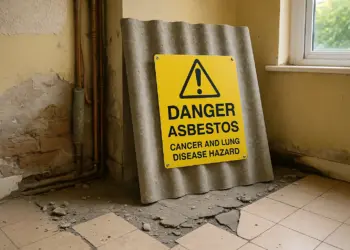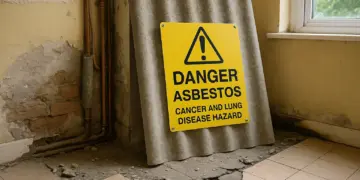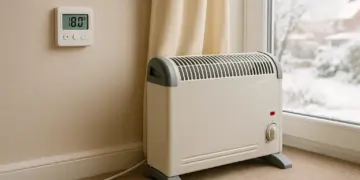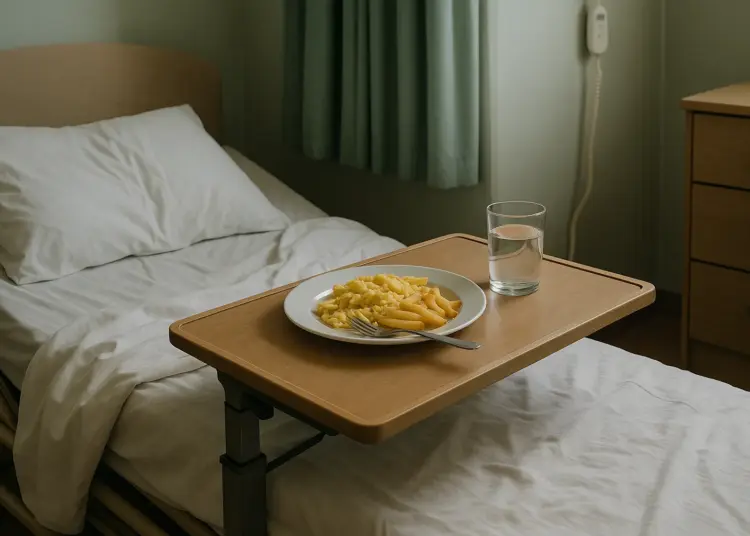Story Highlight
– 96-year-old resident choked while eating alone in her room.
– Staff was unaware of resident’s specific care plan.
– Care home company fined £1.8 million for negligence.
– Investigation revealed fatal supervision lapse during mealtime.
– Improvements implemented following incident to enhance resident safety.
Full Story
A care home provider has been fined £1.8 million following a tragic incident involving a 96-year-old resident who choked to death while eating alone in her room. The case has raised significant concerns about the standards of care in residential facilities.
Elizabeth Campbell, known affectionately as Peggy, was a resident of Cradlehall Care Home located in Inverness. She was required to follow a specialist diet that comprised soft, moist foods presented in manageable sizes. According to her care plan, it was essential that she be supervised during mealtimes to mitigate risks associated with her dietary needs.
On the evening of June 11, 2022, Peggy was served a meal that included macaroni and chips while she sat up in her bed. At that time, the unit was staffed by only two agency carers responsible for twelve residents. Around 5:45 PM, one of the carers left Peggy’s room to retrieve a drink. However, during her absence, she was confronted with urgent issues concerning other residents, compelling her to call for assistance from a nearby unit. Consequently, Peggy was left unattended for up to twenty minutes.
Upon returning, the carer promptly realised something was amiss and raised the alarm. Despite swift action from other staff and the arrival of a paramedic, Peggy was sadly pronounced dead shortly thereafter.
An investigation conducted by the Health and Safety Executive (HSE) identified that the primary cause of her death was the lack of supervision and inadequate knowledge among staff regarding resident care plans. The investigation highlighted the critical failures in the care home’s operational protocols, particularly the absence of a robust system ensuring that all staff, including agency workers, were knowledgeable about residents’ specific needs, including the necessity for supervision during meals.
Following the investigation’s findings, the HSE initiated legal proceedings against HC-One Limited, the company managing the care home. The firm accepted liability for failing to adhere to the Health and Safety at Work etc Act 1974. The case concluded with the company being fined £1.8 million in a ruling issued by Inverness Sheriff Court on October 20, 2025.
Michelle Gillies, the HSE inspector overseeing the case, remarked, “This incident was completely preventable had the company taken steps to ensure all of those working at the home knew about the needs of its residents. While no blame has been placed on any individual, the company’s failures in this case caused Peggy’s death.” She emphasised that this is not an isolated case, stating that previous choking incidents within care homes had also warranted HSE investigations, urging care home operators to take immediate measures to safeguard residents.
The HSE functions as the national regulator for workplace health and safety in Britain, with a mission to protect individuals and their environments, promoting safer living and working conditions. For further information about the relevant legislation related to this case, more detailed content is available.
In light of this incident, family members and advocates for seniors in care facilities are calling attention to the need for improved training and communication among personnel. The tragic loss of Peggy Campbell serves as a stark reminder of the responsibilities care homes have towards their residents, particularly with vulnerable elderly individuals who require diligent oversight and support during essential activities like eating.
As the care home industry continues to evolve, the regulation and monitoring of such establishments remain critical. Experts underscore the importance of ensuring that all staff members are not only appropriately trained but also familiar with individual care plans to prevent similar tragedies from occurring in the future. The HSE continues to monitor care standards, advocating for the rights and safety of residents across the nation.























This is heartbreaking and entirely preventable. Clear communication of care plans and consistent supervision during meals are fundamental responsibilities. The size of the fine reflects systemic failures, but the priority now must be learning from this case: ensure all staff know and follow individual care requirements, improve training on choking risks and emergency response, and strengthen handovers and supervision arrangements so no vulnerable resident is left alone when they should not be.
This is heartbreaking and wholly preventable. Clear communication of individual care plans and reliable supervision during known high risk activities such as eating are fundamental responsibilities. Management must ensure staff are trained, competent and routinely checked to follow care plans, and that systems are in place so no resident requiring supervision is left alone. Families and regulators need assurance that corrective actions are thorough, sustained and regularly audited so a tragedy like this cannot happen again.
This is a devastating and entirely preventable outcome. When a resident has a documented need for supervision during meals that instruction must be clearly communicated, recorded and acted upon by every member of staff on duty. Robust handovers, accessible care plans at point of care and routine competency checks for staff on feeding and choking response are essential. Management must create a culture where raising and addressing safety concerns is expected and supported. Regulators and operators should treat this as a wake up call to ensure training, supervision and staffing levels match the needs of residents so no family has to endure a loss like this.
This is devastating and completely avoidable. When care plans are not known or followed the consequences can be fatal. Supervision during meals for residents at risk of choking is a basic safety measure and must be enforced through clear routines, robust handovers and regular competency checks. Management and regulators need to treat this as a systems failure not an isolated mistake and ensure staff have the training time and support to do their jobs properly. Families must be able to trust that care homes will act on documented risks and protect vulnerable people.